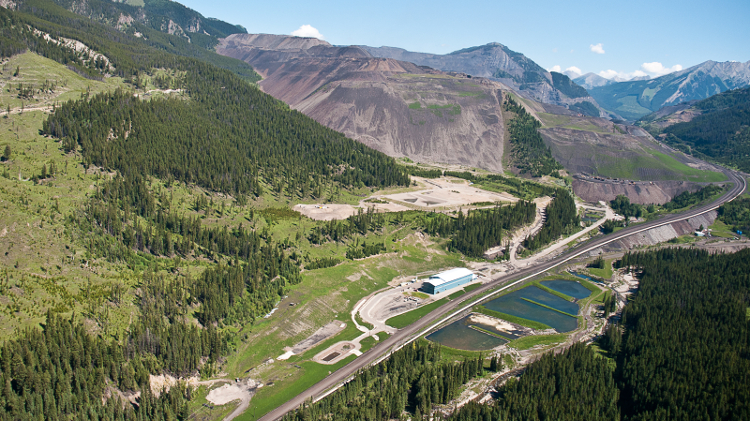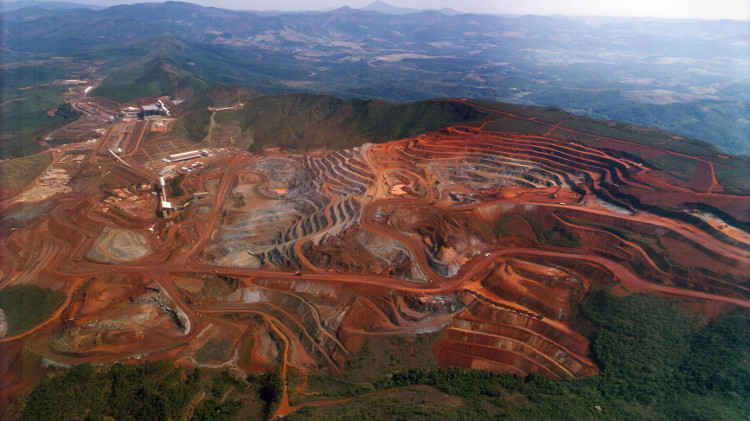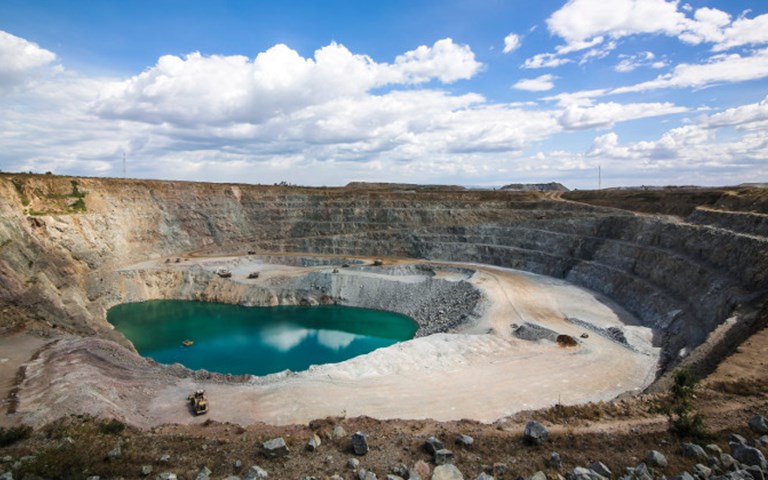Acacia will continue operations at its three mines in Tanzania — Bulyanhulu, Buzwagi and North Mara, pictured here — despite the President’s accusations the firm under-reported revenues. Courtesy of Acacia Mining
A Tanzanian presidential committee has alleged that Acacia Mining owes the government tens of billions of dollars in unpaid taxes from under-reporting the gold and copper levels in its concentrate exports over the past 19 years. Acacia has strongly refuted these accusations.
The committee presented its findings to Tanzania’s president, John Magufuli, on June 12, only a few weeks after another committee alleged the miner’s concentrate contained 10 times more gold than it had declared.
Magufuli had created two committees to look into the Tanzanian mining sector. The first was made up of academics and professionals in the sector and investigated the contents of concentrates in export containers while the second was made up of lawyers and economists tasked with determining the economic impact of exporting concentrates. Acacia said that the second committee’s findings were based upon the “erroneous figures within the First Committee report.”
Tanzanian inquiry probes deaths, injuries at Acacia’s North Mara mine
In a televised statement in Swahili, Magufuli said that Acacia declared 40 per cent fewer containers of concentrate than it actually shipped. “If they accept that they stole from us and seek forgiveness in front of God and the angels and all Tanzanians and enter into negotiations, we are ready to do business,” Magufuli said, according to Bloomberg.
Acacia, which is 63.9 per cent owned by Barrick Gold, denied both committees’ findings in press releases following Magufuli’s address. “We have always conducted our business to the highest standards and operated in full compliance with Tanzanian law,” the statement reads. For 2016, the company reported gold production of 830,000 ounces, US$1.05 billion in revenues and tax expenses of US$147 million.
On Acacia’s microsite created to provide information regarding this dispute, Acacia outlines why the committees’ claims are “inaccurate and unexplainable.” According to the company’s site their financial, production and gold reserve records “are audited to international standards by leading international, independent auditors. As a result, it would not be possible for Acacia to under-report gold reserves, gold production and revenues even for a short period of time, let alone over many years”.
Acacia also calls attention to the fact that the Tanzanian government has had full access to concentrate analysis at Acacia’s mines for more than 30 years and has never indicated that there were any discrepancies until now.
After the first committee delivered its report, instead of concluding that the committee had erred, Magufuli reasoned that there had been gross oversight in the mining sector and subsequently fired a number of top government officials including the chief executive of the Tanzania Minerals Audit Agency (TMAA).
“For all these years, even with the TMAA in place, the country has been shortchanged and continues to be cheated,” said Magufuli, according to The East African.
Executive chairman at Barrick John Thornton met with Magufuli on June 14 and agreed to commence negotiations to seek a resolution that is in the best interest of all stakeholders. Acacia CEO Brad Gordon said on a call to investors that he was glad that the negotiations will take place. “It is clear that we do need to address the lack of trust between the government and Acacia,” said Gordon.
Troubles between the firm and the Tanzanian government began in March when the latter issued a ban on concentrate exports. Both the Bulyanhulu and Buzwagi mines produce gold in doré and concentrate. Last year concentrates accounted for 30 per cent of Acacia's revenue, and the company said it estimates the export ban is costing it US$1 million each day.
The second committee recommended maintaining the ban until back-taxes were paid to the government. The committee made 20 recommendations, all of which Magufuli said he wants to pursue, including renegotiating mining agreements to allow the state to buy shares in the companies and redesigning mining and tax laws to make the industry more beneficial to the nation.
Acacia has three mines in Tanzania, and the company said on June 13 that operations will continue as normal. While Gordon admitted that output has slumped because of the export ban, he told investors that the company’s production targets for the year have not changed.
Shares in Acacia have fallen more than 45 per cent since the ban began in early March.




